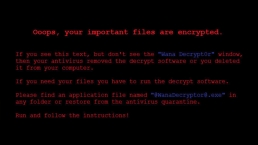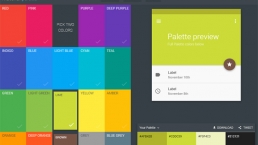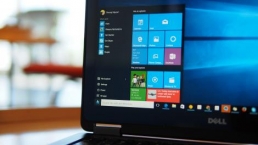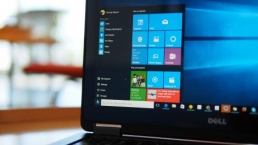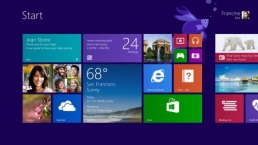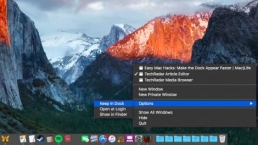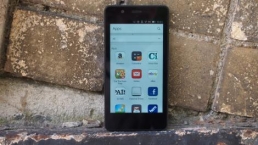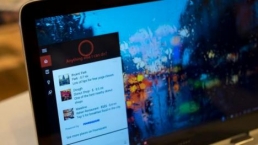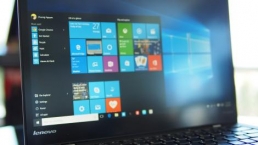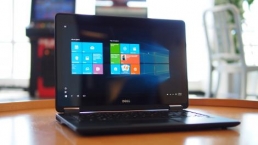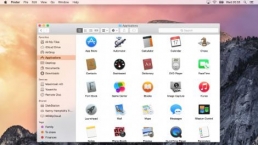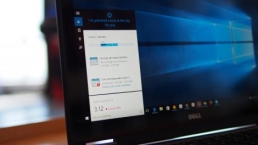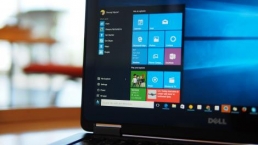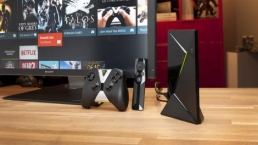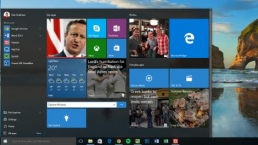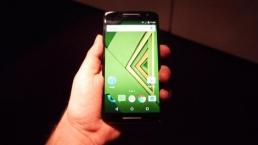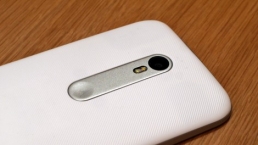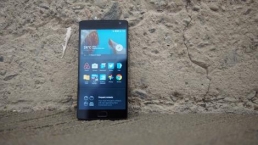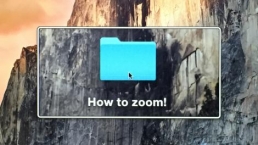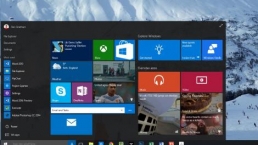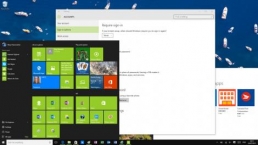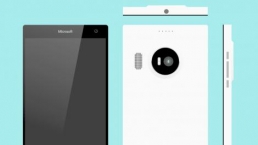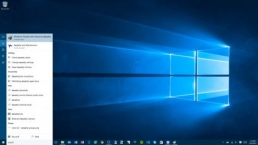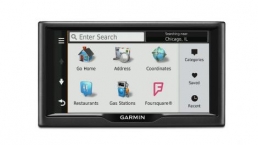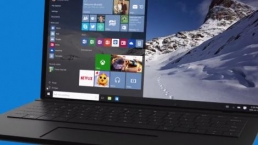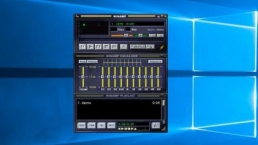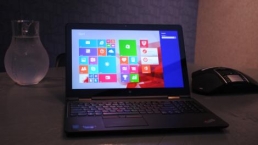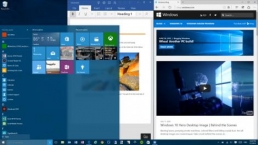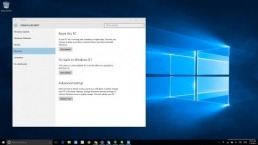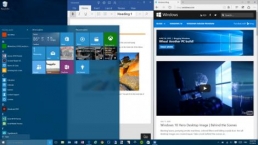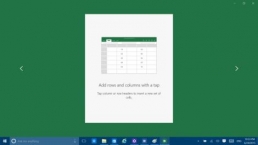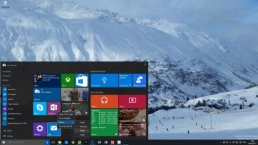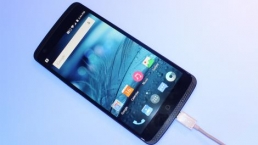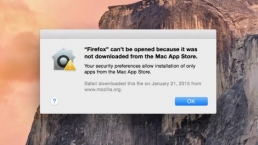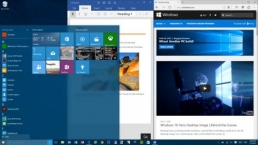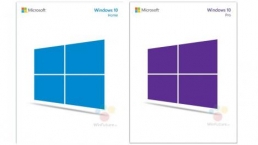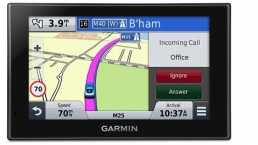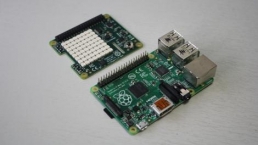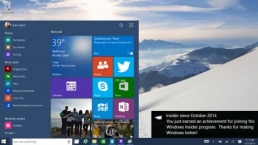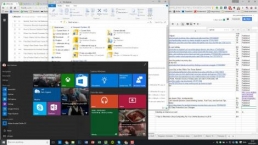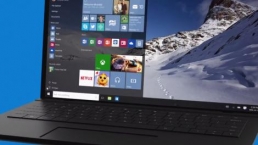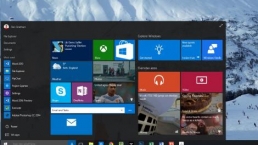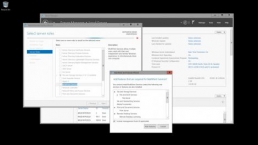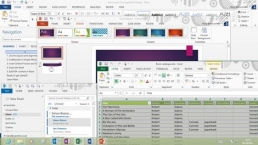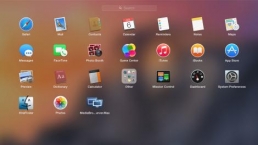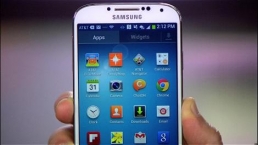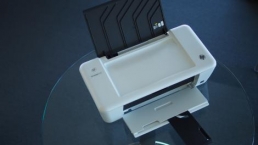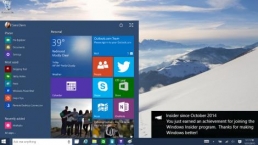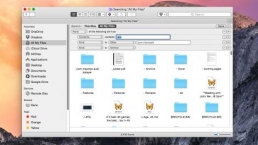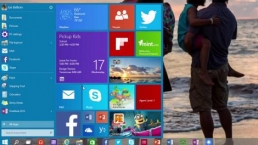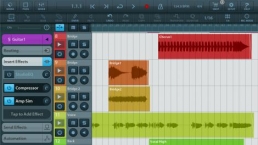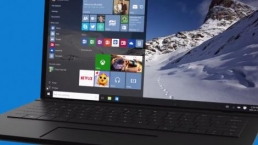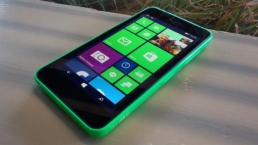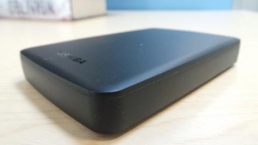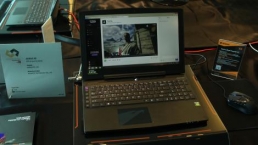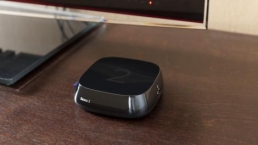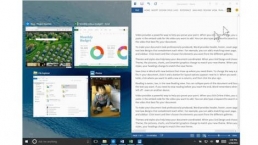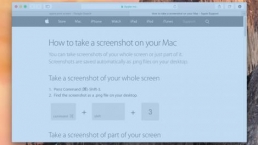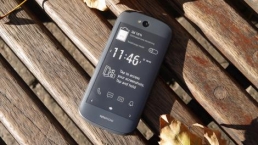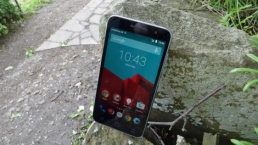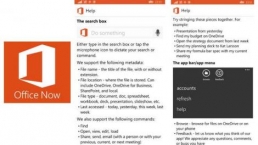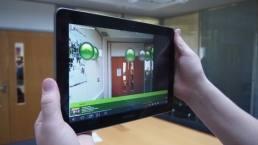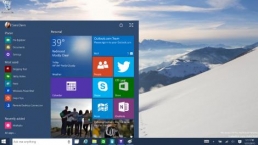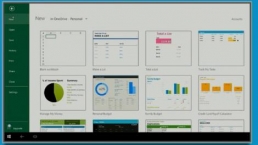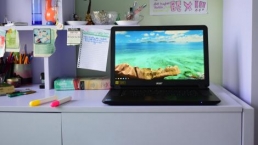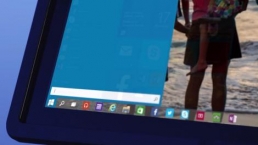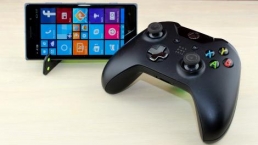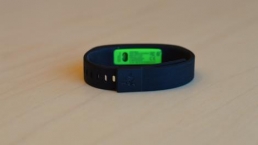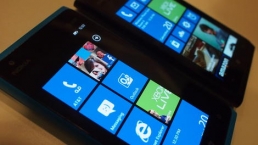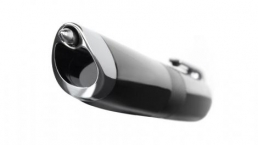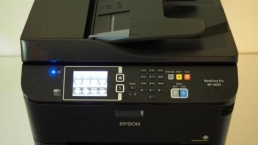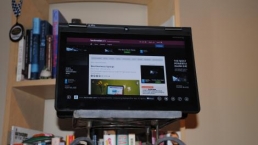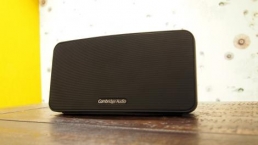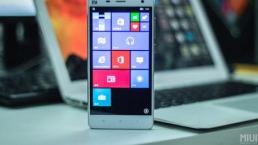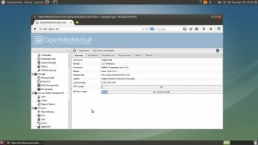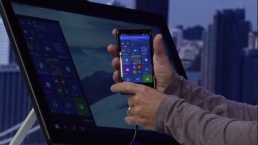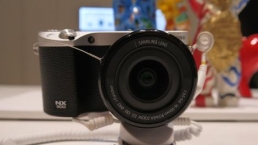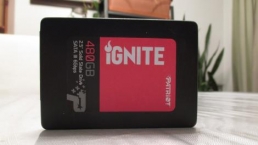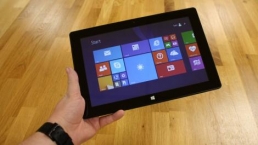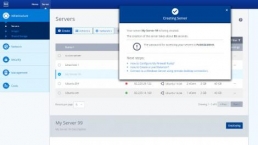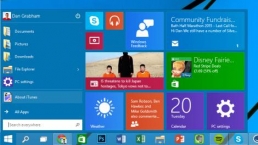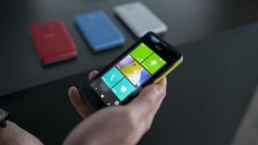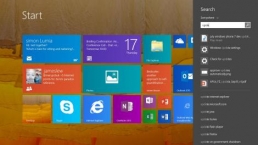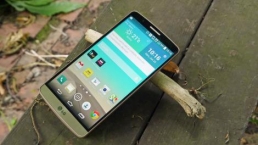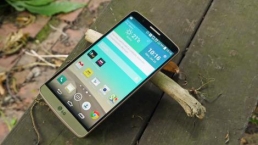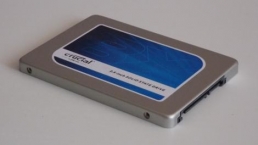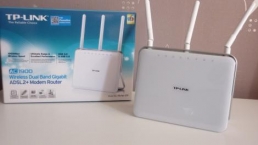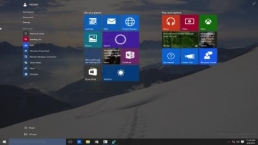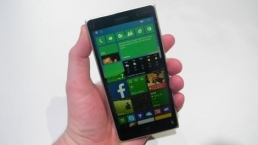
Introduction, display and design
Update: Moto X continues to be one of the most stylish Android phones in 2015 and looks even better with Android Lollipop. Our review reflects that.
The Moto X name didn’t changed in 2014, but rest assured, this updated Android smartphone packs enough new specs to deserve its own Moto X+1 or Moto X2 title.
With a larger screen, a better but not perfect camera, surprisingly useful first-party apps and, of course deeper customization, the original Moto Maker returns with a competitive price.
It’s free on-contract and on sale for as little as $499 (£300, around AU$500) SIM free. Don’t let Motorola’s low ball price fool you either. Like its low-key name, the Moto X 2014 has a deceptive asking price.
Motorola’s flagship phone is slightly bigger in every sense, enough to make it one of the best Android premium phones next to the more expensive Samsung Galaxy S6 and HTC One M9. Though not groundbreaking like the curved Samsung Galaxy S6 Edge or LG G Flex 2, it’s still one of the most stylish phones in 2015, but not quite good enough to be part of our best phones list.

Availability and price
The Moto X 2nd generation launched on September 16, 2014, but that was the AT&T release date in the US. It came out for Verizon on September 26. Both carriers sold the 16GB phone on-contract for $100 and 32GB version for $150.
On sale, it was reduced to $1 during the holidays by some retailers, and Motorola eventually followed suit on its Moto Maker website in December. The unlocked price begins at around $499.
In the UK, the new Moto X GSM unlocked edition became available at the end of September 2014 for £420 through Motorola’s official website. Bumping the internal storage from 16GB to 32GB takes it to £460.
Wood and leather adds to the price. Moto X 2014 with a premium back costs $425 and £439.99 for the 16GB version and $175 and £479.99 for the 32GB edition, based on the original pricing.
Android 5.0 Lollipop premiered with the Motorola-made Nexus 6 and has arrived soon after on Moto X, at least from some carriers. Both the unlocked version and Verizon variant benefitted from the upgrade right away, while AT&T customers with Moto X 2nd generation had to wait several months. The same may happen with Android 5.1 in the offing.
Nexus 6, by comparison, has the Android Lollipop from the get-go, a larger 6-inch screen, a camera with optical image stabilization, dual front-facing speakers and a bigger battery. But it’s also much more expensive at $650 (£499) for the 32GB base model and it loses that one-handed appeal.
Display
There’s more to the Moto X 2014 now that the display literally measures up to its competition. It’s 5.2 inches, the same size as the Sony Xperia Z3 and a hair larger than the 5.1-inch Galaxy S6.
That’s up half an inch from last year’s 4.7-inch Moto X, a size that Motorola left to the likes of Apple and its, by comparison, pint-sized iPhone 6 display.
With a little reach and large enough fingers, the new Moto X is still a one-handed phone that almost ventures into two-handed territory. Yet it doesn’t compromise much on the display when compared to a phablet.

It’s again protected by Corning Gorilla Glass with the same AMOLED technology behind it, but the 1080p Full HD resolution makes for a much crisper screen with 423 pixels per inch. You won’t want to go back to the original’s 720p and 316 ppi display specs, that’s for sure.
This sharper display is put to the test as soon as the new Moto X is booted up thanks to the bright and colorful default wallpapers that Motorola included with the handset. It really sets the tone for this premium smartphone experience, especially next to the still 720p Moto G 2014.

It stands bezel-to-bezel with the Samsung Galaxy S5 in this regard, though it lacks the Super AMOLED display and has since been beaten by the QHD Galaxy S6. In a few cases, we also found the Moto X screen harder to read outdoors. But keep in mind that Motorola has made its smartphone much cheaper than anything in its class.
The Moto X 2014 makes up for its direct sunlight shortcomings with a better way to conserve battery life by default. The return of the extremely efficient Motorola Active Display means that waving your hand over the phone or taking it out of your pocket brings up the current time and simple notification icons in white. The rest of the screen remains off. The popular, always-on microphone is here as well, giving you a way to cut to the chase with voice commands.

Tapping an Active Display icon reveals more information about the notification, like the gist of your latest emails or Hangout messages. It’s a great use of AMOLED’s ability to selectively light up individual pixels and it sure beats an ambiguous blinking status light on a phone.
Design
An all-new aluminum metal frame means that Moto X 2nd generation is stronger than its predecessor, not just bigger than before. Plastic is no longer binding together Motorola’s flagship device. It’s closer to the build material of the iPhone 5S, sturdier than the pliable iPhone 6 Plus and, most importantly, doesn’t feel as cheap as the metal-looking polycarbonate Samsung Galaxy S5.
What’s surprising is that despite the Moto X’s naturally larger size care of the 5.2-inch display, Motorola once again used tricks to minimize the overall dimensions, and it worked in its favor. For example, there’s very little bezel around the edges and the soft buttons are on-screen, as opposed to the capacitive buttons used by Samsung devices.
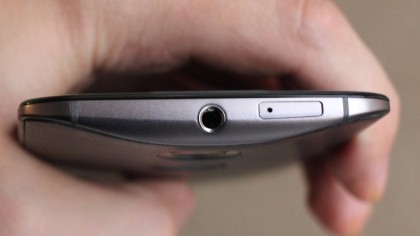
This makes the Moto X 2014 roughly the same size as the Galaxy S5 and, remarkably, even the iPhone 6. Its official measurements are 2.9 in (72.4 mm) x 5.5 in (140.8 mm) with a sloped 0.2 in (3.8 mm) to 0.4 in (9.9 mm) curve.
The S5’s width and height are 2.9 in (72.5 mm) x 5.5 in (142 mm) with a narrower overall depth of 0.3 in (8.1 mm). iPhone 6 is nearly as big: 2.64 in (67.0 mm) x 5.44 in (138.1 mm) x 0.27 in (6.9 mm). As much as I appreciate the iPhone’s home button and Touch ID, it has half an inch less screen real estate to show for its almost-as-tall dimensions.
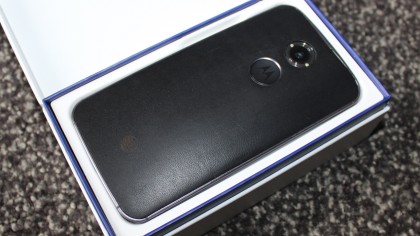
 Moto X’s premium frame thins out along the corners, but forms a fairly thick bow shape at the center for a curved back. This leaves plenty of room for a top-center 3.5mm headphone jack, an adjacent nano-SIM card slot and bottom-placed micro USB port. Along the thinned-out sides, there’s just enough depth for a volume rocker that’s smooth and power button that’s accented with ridges. This makes it easier to tell the two stainless steel buttons apart in your pocket.
Moto X’s premium frame thins out along the corners, but forms a fairly thick bow shape at the center for a curved back. This leaves plenty of room for a top-center 3.5mm headphone jack, an adjacent nano-SIM card slot and bottom-placed micro USB port. Along the thinned-out sides, there’s just enough depth for a volume rocker that’s smooth and power button that’s accented with ridges. This makes it easier to tell the two stainless steel buttons apart in your pocket.
Moto Maker returns with additional customizations to match the now-premium Moto X with even more personalization. Leather, for example, is now among the choices that can back your phone in one of four colors. It joins last year’s four wood options and 17 plastic colors. Black or white fronts and 10 accent colors for the front-facing speaker grills and rear Motorola logo dimple round out the most pressing Moto Maker decisions.
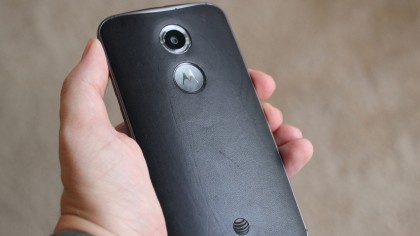
Cradling the Moto X backed in soft leather is a delight, but it’s also the most delicate material within Moto Maker. Yes, the Moto 360 smartwatch uses the same genuine leather sourced from Horween Leather Company, but the supple material bruised more easily in our pockets than on our wrists. That’s what’s great about Moto Maker, though. It’s filled with more options than your standard one-size-fits-all smartphone in case that doesn’t work for you.
The new Moto X weighs in at 144 grams vs the original’s 139 grams. Considering the aluminum metal frame and 5.2-inch screen, that’s a worthy trade-off. Of course, there are beefier specs too.
Specs, performance and interface
Moto X 2014’s specs, like its larger display size, complement the fact that it’s no longer the runt of the Android litter. Its Qualcomm Snapdragon 801 processor is identical to the 2.5GHz quad-core chip that’s found at the heart of the LTE-equipped Galaxy S5.

Motorola also answers Samsung’s graphics performance with the same Adreno 330 GPU at 578 MHz and its memory with a healthy 2GB of RAM. The new Moto X isn’t an also-ran when it comes to the most important specs. It’s snappy performance backs this up even when all of our favorite apps, photos and video are clogging the internal storage.
There’s a caveat: you can only fill up the Moto X so much because you won’t find a micro SD card slot anywhere. Expandable storage isn’t a part of the Moto X like it is on the Moto G 2014 and the earlier Moto G 4G model. You’ll have to contend with the 16GB and Moto Maker-exclusive 32GB internal configurations.

Also missing is any sort of fingerprint sensor, heart rate monitor (not that you really need that) and waterproof seal. It doesn’t measure up to the IP67 rating of many Android smartphones, so it’s not water resistant up to 30 meters for an hour. Instead, it’s just “splashproof.” It’s more than the leather back that’s delicate in wet conditions.
Moto X did get the speakers right where others often fail. Its front-facing bottom grill projected music the right way – forward – not down at the ground, and its four microphones for voice calls and noise canceling reduced background noise to appropriate levels in all our test calls.
Interface and apps
Google may have sold Motorola to Lenovo, but the company is still dedicated to providing a pure Android experience that helps its phone contrast with devices from Samsung and HTC. You won’t find TouchWiz or Sense changing the experience with a wonky overlay.

Moto X’s Android KitKat 4.4 interface (now upgraded to Android 5.0) is much the same as ever save for the Google Now Launcher, a few fresh Motorola-branded apps and some carrier-loaded bloatware depending on your provider. Once again, the aforementioned Moto Display shows up when the display is off, providing a discreet and battery-saving method of peeking at notification icons.
Moto Assist takes driving seriously by reading text messages aloud while you’re on the road. It also knows when to keep quiet without disruptive noises during meetings or when you’re ready for bed. The next day, it wakes up when you wake up, according to your schedule.

Moto Actions takes advantage of the Moto X’s IR emitters that resemble the sensor-spotted Amazon Fire Phone. The built-in app recognizes hand motions from all directions to turn on the Moto Active Display, silence calls and a snooze alarms with a simple wave. Just hop out of the shower and want to know the time? Look no further than Moto Actions. That’s really convenient for a phone that’s only splashproof.
Moto Voice builds upon Google Now by letting you change the always-listening voice prompt. Instead of the “Okay Google Now” command that seemed futuristic in 2013, the new Moto X lets you use custom phrases – everything from “You there Moto X?” to “Wake up buddy!” were among the Motorola-suggested examples. But I preferred the Motorola staffer / X-Men fan who used the prompt, “Okay Professor X” to get things started. And, again, unlike Siri, there’s no need to hold down a button or have the phone plugged in to get the attention of Moto Voice.

Outside of the main Moto suite is Connect, a way to bridge the messaging gap between your Moto X smartphone and computer. It delivers text messages to a Chrome browser extension, though not as reliably as third-party apps like MightyText. I’m still hoping that Google one day brings SMS to Hangouts on a PC. Apple aced this with iMessages among its device owners two years ago and is further building upon it (by relaying all texts) with Mac OS X Yosemite and iOS 8. Connect is hopefully a stopover to something broader from Google.
Everything else about Motorola’s Android setup is untouched next to the Nexus 6, and for the most part, this pure interface is really appealing. It does mean that Google’s quick settings for brightness, Wi-Fi and Bluetooth are buried behind one and two extra steps compared to Samsung’s pull-down menu. I really hate having to adjust the brightness outside with a swipe down, a poke at the left quick settings button, a stab in the dark at the brightness grid label and a feel for the brightness slider. Even with this, pure Android is a lighter and cleaner alternative in all other cases.
Since launch the Moto X has been updated to Android Lollipop and that’s brought a raft of changes and improvements, including a new look, smart lock screen notifications which are intelligently ranked, a redesigned multi-tasking screen and more.
Camera
Moto X 2014 can’t pull off “premium” without a vastly improved camera considering the previous models middling snapper. Motorola bumps the specs to 13MP, up from the 10MP rear camera that proved extremely inconsistent 12 months earlier.
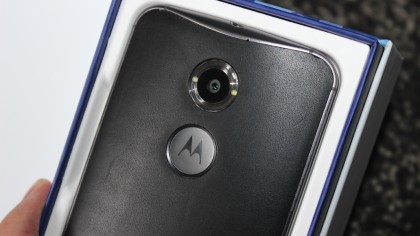
With a 13MP sensor that’s identical to many of today’s Android smartphones, the new Moto X took much sharper pictures than its predecessor. It also put the autofocus in the right place more times than not. That’s not to say that its performance was flawless or as responsive as the speedier LG G4, but I walked away with higher-resolution photos and subjects in focus without the need to plead for retakes. It’s a step in the right direction for Motorola.

The default camera app is simple and straightforward like last year, offering a tap-to-snap touchscreen shutter button, Auto HDR and Panorama. The controls are hidden to the left, while swiping right explores the gallery. What’s interesting here is that Motorola’s software tries to pick out the best pictures via its Highlight Reel functionality. It’s not always perfect, but it does weed out blurry shots and handily group images for a quick comparison.

Keep in mind that Moto X’s stripped-down manual focus and exposure options may make you leap for third-party alternatives in the Google Play Store, but Motorola’s camera app is the only one that opens with two twists of a the wrist. Even if you don’t use the default app all of the time, this shortcut makes for easy to capture photos in a minimal amount of time.
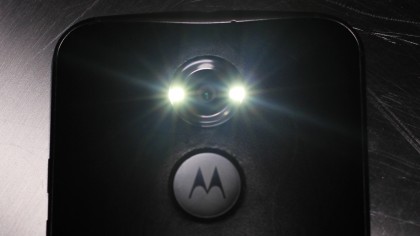
The 13-megapixel camera is accompanied by a unique-sounding ring flash, which essentially means the lens is flanked by two LED flash bulbs. The right and left lights do an admirable job brightening up subjects to balance shots, but approaching subjects too closely still results in overblown pictures.

When the Moto X gets things right colors temperature are oversaturated and pushed to the extreme on the equally saturated AMOLED. It’s vibrate-looking, though not true to life in all cases. Selfies are best shot with the front-facing camera that’s 2 megapixels and doesn’t have a flash even if you want one.

Both cameras can shoot 1080p HD video, but only the rear-facing camera is capable of slow motion video at 120fps and Ultra HD video quality at 30fps. The pixels extend to 2160p, which means Motorola is now welcomed into the 4K smartphone capture club. Whether or not you really want to use up your limited internal storage for such video files is up to you.
Camera samples















Battery life
The new Moto X has a 2300 mAh battery backing up its larger screen, which is bigger than the 2200mAh battery found in the original Moto X. That seems better on paper until you realize that the 5.2-inch screen requires more power throughout the day. Throughout our testing the new Moto X lasted us 24 hours with mixed use.
That’s enough to plug it in at night without fail, but not as long-lasting as something like the Galaxy S5 with a 2800mAh battery. Motorola does benefit from the AMOLED Active Display because checking the time and notifications doesn’t light up the entire screen. It also doesn’t accidentally light up in this mode when face down or in a pocket.
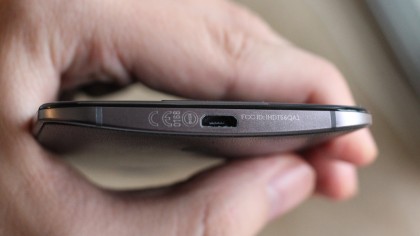
The company’s Moto 360 smartwatch has a significantly shorter battery life of less than a day and it’s yet another thing to charge. However, it also shored up our notification-checking addiction on the Moto X 2014 and ultimately helped the battery last even longer than 24 hours some days.
When battery life is critical, though, it’s Samsung that swoops in with its Ultra Power Saving mode. It can be a real battery life-saver. Motorola’s 10% is the same as its 90%. You also won’t find a backwards compatible micro USB 3.0 connection on the Moto X for faster charging and transfers, as seen in the Note 3 and S5.
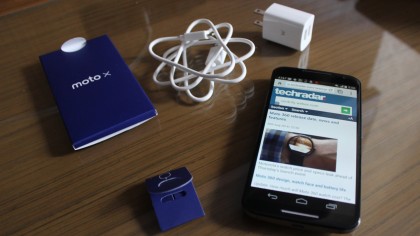
Motorola does sell a Turbo Charger that can add an impressive eight hours of battery life in just 15 minutes thanks to Qualcomm Quick Charge 2.0 technology. Its ideal for juicing up during work breaks in the day and layovers at the airport, but it’s not something you’ll get out of the box.
It costs $35 (about £21, AU$40) through Motorola’s Moto Maker store, unlike the Nexus 6 and Droid Turbo that come with the larger power brick.
Verdict
Moto X 2014’s display size jumped half an inch, but the overall quality leapt a full foot from its also-ran origins. That’s not to say that it was a terrible mid-range device the first time around. Motorola has just updated the design and specs enough to make it a high-end contender in 12 short months.
It takes on the “premium” label without sacrificing the low price point in most regions. In fact, the US price is actually a lot cheaper, coming in at around half the price of its leading competitors on contract. SIM-free it’s still a deal: $499 (around £300, AU$500).

We liked
The 5.2-inch display gives us more screen real estate without verging on phablet territory. It’s still a one-handed device for people with large enough fingers and coupled with the AMOLED Moto Active Display that we wish all smartphone manufacturers would blatantly copy already.
A metal frame makes it feel as good as the screen looks, while Moto Maker combinations now total in the thousands. The pure Android OS is thankfully only supplemented by Motorola’s useful apps and the price makes it Android’s hidden treasure. X truly does mark the spot.

We disliked
It’s premium, but it’s not without pitfalls. Moto X 2014 doesn’t have a micro SD card slot, so you’re either stuck with 16GB or 32GB of internal storage. You can also forget about taking it in any sort of water. It’s not IP67 waterproof like many other Androids so hold onto it tight.
Wait, don’t hold onto it too tightly. That all-new premium leather back cost more, but bruised on us rather easily. The 13-megapixel rear camera takes better photos than before – not much of an accomplishment. We’re still not convinced it’ll ever take the shot we want every time.

Final Verdict
Don’t think that just because the Moto X 2014 name didn’t get much of a change that the phone is just a basic specs bump. Motorola’s new flagship smartphone proves that the reinvented company is listening to customer feedback with a bigger screen and aluminum metal frame, all for a price that’s better than its competition. It only half-listened to the requests for a superior camera and didn’t pay attention to pleas for a microSD slot.
The good news is that Motorola is continuing with its popular Moto Maker customization policies. That means personalized backs including new soft leather and trim accents on the front and around the camera lense. And yet the firm doesn’t tinker with the pure Android experience set forth by Google. The specs are more robust while the software stays minimal, the opposite of other Android phones out there. That’s just the way Motorola rolls, and we rather enjoy it.
First reviewed: September 2014
![]()
Related Posts
December 6, 2021
7+ Web Design Trends for 2022: Which Will You Use?
December 6, 2021
The 10 Best WordPress Booking Plugins to Use On Your Website
December 6, 2021
How to Use a Web Cache Viewer to View a Cached Page
November 6, 2021
10 Modern Web Design Trends for 2022
November 6, 2021
Best Free SSL Certificate Providers (+ How to Get Started)
November 6, 2021
How to Design a Landing Page That Sends Conversions Skyrocketing
November 6, 2021
What Are the Best WordPress Security Plugins for your Website?
October 6, 2021
Your Guide to How to Buy a Domain Name
October 6, 2021
How to Build a WordPress Website: 9 Steps to Build Your Site
September 6, 2021
10 Best Websites for Downloading Free PSD Files
September 6, 2021
HTML5 Template: A Basic Code Template to Start Your Next Project
September 6, 2021
How Much Does It Cost to Build a Website for a Small Business?
September 6, 2021
A List of Free Public CDNs for Web Developers
September 6, 2021
6 Advanced JavaScript Concepts You Should Know
August 6, 2021
10 Simple Tips for Launching a Website
August 6, 2021
25 Beautiful Examples of “Coming Soon” Pages
August 6, 2021
10 Useful Responsive Design Testing Tools
August 6, 2021
Best-Converting Shopify Themes: 4 Best Shopify Themes
July 6, 2021
What Is Alt Text and Why Should You Use It?
July 6, 2021
24 Must-Know Graphic Design Terms
June 6, 2021
How to Design a Product Page: 6 Pro Design Tips
April 6, 2021
A Beginner’s Guide to Competitor Website Analysis
April 6, 2021
6 BigCommerce Design Tips For Big Ecommerce Results
April 6, 2021
Is WordPress Good for Ecommerce? [Pros and Cons]
March 6, 2021
Make Websites Mobile-Friendly: 5 Astounding Tips
March 6, 2021
Shopify vs. Magento: Which Platform Should I Use?
March 6, 2021
Top 5 Web Design Tools & Software Applications
February 6, 2021
Website Optimization Checklist: Your Go-To Guide to SEO
February 6, 2021
5 UX Design Trends to Dazzle Users in 2021
February 6, 2021
What Is the Average Page Load Time and How Can You Do Better?
February 6, 2021
Choosing an Ecommerce Platform That Will Wow Customers
February 6, 2021
7 Best Practices for Crafting Landing Pages with Forms
February 6, 2021
7 B2B Web Design Tips to Craft an Eye-Catching Website
January 6, 2021
Mobile-Friendly Checker | Check Your Site’s Mobile Score Now
January 6, 2021
8 Tips for Developing a Fantastic Mobile-Friendly Website
December 6, 2020
How to Add an Online Store to Your Website [4 Ways]
December 6, 2020
5 UX Design Tips for Seamless Online Shopping
November 6, 2020
Ecommerce Website Essentials: Does Your Site Have All 11?
November 6, 2020
5 Small Business Website Essentials You Need for Your Site
November 6, 2020
Your Website Redesign Checklist for 2020: 7 Steps for Success
May 1, 2020
Psychology of Color [Infographic]
April 21, 2020
How to start an online store that drives huge sales
January 3, 2020
5 Lead Generation Website Design Best Practices
March 6, 2019
6 Reasons You Should Redesign Your Website in 2019
March 6, 2019
7 Web Design Trends for 2019
February 19, 2019
Who owns the website/app source code, client or developer
February 7, 2019
Don’t Let Your Domain Names Expire in 2019
January 8, 2019
2019 Website Development Trends To Note
October 6, 2017
How Web Design Impacts Content Marketing
October 6, 2017
How to Choose a Navigation Setup
August 6, 2017
Why User Experience Matters to Marketing
July 6, 2017
5 Ways Web Design Impacts Customer Experience
September 6, 2016
How to Learn Angular
September 6, 2016
The Excuses for Not Having a Website (Infographic)
September 6, 2016
How to Build an Award-Winning Web Design Team
September 6, 2016
13 Free Data Visualization Tools
August 6, 2016
How Selling Pastries Helped Us Design a Better Product
August 6, 2016
11 Sites to Help You Find Material Design Inspiration
July 4, 2016
How to change free wordpress.com url
April 6, 2016
The 5 Best Free FTP Clients
April 6, 2016
7 Free UX E-Books Worth Reading
March 6, 2016
Can Handwritten Letters Get You More Clients?
December 10, 2015
Star Wars Week: How to create your own Star Wars effects for free
December 6, 2015
20 "Coming Soon" Pages for Inspiration
December 6, 2015
6 Free Tools for Creating Your Own Icon Font
December 6, 2015
9 Useful Tools for Creating Material Design Color Palettes
November 6, 2015
20 Free UI Kits to Download
November 6, 2015
50 Web Designs with Awesome Typography
November 6, 2015
When to Use rel="nofollow"
November 6, 2015
7 Free Books That Will Help You Become More Productive
November 6, 2015
50 Beautiful One-Page Websites for Inspiration
November 6, 2015
Circular Images with CSS
October 6, 2015
Lessons Learned from an Unsuccessful Kickstarter
October 6, 2015
5 Games That Teach You How to Code
October 6, 2015
Cheatsheet: Photoshop Keyboard Shortcuts
October 6, 2015
An Easy Way to Create a Freelance Contract for Your Projects
October 6, 2015
50 Design Agency Websites for Inspiration
September 29, 2015
JB Hi-Fi shutting the book on ebooks
September 24, 2015
Opinion: Quick, Quickflix: It's time to give yourself the flick
September 24, 2015
New Star Wars 360-degree video is among first on Facebook
September 21, 2015
Apple purges malicious iPhone and iPad apps from App Store
September 12, 2015
Apple's new Live Photos feature will eat up your storage
September 12, 2015
The latest Windows 10 Mobile preview has been delayed
September 12, 2015
IBM buys StrongLoop to add Node.js development to its cloud
September 8, 2015
Fake Android porn app takes your photo, then holds it ransom
September 6, 2015
50 Restaurant Websites for Inspiration
September 6, 2015
Zero UI — The Future of Interfaces
September 6, 2015
50 Beautiful Websites with Big Background Images
September 6, 2015
Infographic: 69 Web Design Tips
September 6, 2015
Free Windows 10 Icons
September 2, 2015
Instagram turns itself into a genuine messaging service
August 11, 2015
In Depth: How Microsoft taught Cortana to be more human
August 11, 2015
Windows 10 price, news and features
August 11, 2015
Windows 10's broken update introduces endless reboot loop
August 11, 2015
Windows 10 races to 27m installs
August 11, 2015
Windows 10 IoT Core gets first public release
August 10, 2015
iOS Tips: How to backup iPhone to an external drive
August 10, 2015
Windows 8.1 RT finally getting Windows 10 Start Menu
August 10, 2015
How to use Windows Hello
August 10, 2015
Review: Moto Surround
August 10, 2015
Review: Moto G (2015)
August 9, 2015
8 of the best free VPN services
August 8, 2015
Use Firefox? Mozilla urges you update ASAP
August 7, 2015
Mac Tips: Apple Mail: How to remove the Favorites Bar
August 7, 2015
How to make the OS X dock appear faster
August 7, 2015
Review: BQ Aquaris E45 Ubuntu Edition
August 7, 2015
Review: Acer Liquid Jade Z
August 6, 2015
How to reinstall Linux
August 6, 2015
How to reinstall Windows
August 6, 2015
Updated: Apple Music: release date, price and features
August 6, 2015
Social News Websites for Front-End Developers
August 6, 2015
10 Free JavaScript Books
August 6, 2015
50 Beautiful Blog Designs
August 6, 2015
Animated SVG Pipes Effect
August 6, 2015
Launching Your First App
August 5, 2015
Windows 10 goes freemium with paid apps
August 5, 2015
Updated: Week 1 with Windows 10
August 5, 2015
Mac Tips: How to manage Safari notifications on Mac
August 5, 2015
Microsoft Sway may kill the PowerPoint presentation
August 4, 2015
Microsoft gives Outlook on the web a new look
August 4, 2015
Mac OS X vulnerable to new zero-day attack
August 4, 2015
Windows 10 users warned of two scams
August 4, 2015
Microsoft's Docs.com is now available to everyone
August 3, 2015
Mac Tips: How to edit the Favorites sidebar on Mac
August 3, 2015
Updated: Windows 10 price, news and features
July 29, 2015
Review: HP ProDesk 405 G2
July 29, 2015
Hands-on review: HP Elite x2 1011
July 29, 2015
Hands-on review: Updated: Windows 10 Mobile
July 29, 2015
Review: Updated: Nvidia Shield Android TV
July 28, 2015
LIVE: Windows 10 launch: Live Blog!
July 28, 2015
How to prepare for your upgrade to Windows 10
July 28, 2015
Review: Updated: Windows 10
July 28, 2015
Review: Updated: HP Pro Tablet 608
July 28, 2015
Review: Heat Genius
July 28, 2015
Hands-on review: Moto X Play
July 28, 2015
Hands-on review: Moto X Style
July 28, 2015
Hands-on review: Moto G (2015)
July 28, 2015
Review: 13-inch MacBook Air (early 2015)
July 28, 2015
Hands-on review: OnePlus 2
July 28, 2015
Review: LG 65EG960T 4K OLED
July 28, 2015
Mac Tips: How to share printers on Mac
July 27, 2015
Apple Music's arrival hasn't opened Pandora's box
July 26, 2015
Review: Garmin Swim
July 25, 2015
How to merge OS X contacts into an existing list
July 25, 2015
Hands-on review: UPDATED: ZTE Axon
July 24, 2015
Mac Tips: How to zoom in on a Mac
July 24, 2015
What Windows 10 means for the enterprise
July 24, 2015
Review: JBL Charge 2 Plus
July 24, 2015
Review: Acer Aspire S7
July 24, 2015
Review: Updated: Canon G3 X
July 24, 2015
Review: Updated: iPad Air 2
July 24, 2015
Review: Thinksound On1
July 24, 2015
Review: Asus Chromebook Flip
July 24, 2015
Review: Garmin Forerunner 225
July 23, 2015
Review: Garmin nuvi 68LM
July 23, 2015
Review: Samsung Galaxy S6 Active
July 23, 2015
Review: Bowers and Wilkins P5 Wireless
July 23, 2015
Review: Dell XPS 15 (2015)
July 21, 2015
Review: Fuji S9900W
July 21, 2015
Review: Updated: Fitbit Surge
July 21, 2015
Review: UE Roll
July 21, 2015
Hands-on review: Ubik Uno
July 20, 2015
Review: Samsung HW-J650
July 20, 2015
Updated: 40 best Android Wear smartwatch apps 2015
July 20, 2015
Review: Acer Chromebook C740 review
July 20, 2015
Review: Huawei Talkband B2
July 20, 2015
Review: Dell Venue 10 7000
July 20, 2015
Review: Intel Core i7-5775C
July 17, 2015
Mac Tips: How to delete locked files on Mac
July 17, 2015
Review: Pebble Time
July 16, 2015
Microsoft just made Windows XP even less secure
July 16, 2015
Windows 8.1 RT is getting an update this September
July 16, 2015
OS showdown: Windows 10 vs Windows 8.1 vs Windows 7
July 16, 2015
Review: Acer CB280HK
July 15, 2015
Windows 10 is ready for new laptops and PCs
July 15, 2015
Explained: How to take a screenshot in Windows
July 15, 2015
Office for Windows 10 appears in latest build
July 14, 2015
Review: ZTE Axon
July 14, 2015
Review: ViewSonic VP2780-4K
July 14, 2015
Hands-on review: SanDisk Connect Wireless Stick
July 14, 2015
Review: Oppo PM-3
July 14, 2015
Review: BT 11ac Dual-Band Wi-Fi Extender 1200
July 14, 2015
Review: Fuji X-T10
July 13, 2015
How to build an SEO strategy for your business
July 13, 2015
Review: Lenovo ThinkPad Yoga 15
July 13, 2015
Review: Audio-Technica ATH-MSR7
July 13, 2015
Review: Garmin NuviCam LMT-D
July 13, 2015
Review: Dell Inspiron 13 7000
July 13, 2015
Hands-on review: AstroPi SenseHAT
July 13, 2015
Hands-on review: EE Rook
July 13, 2015
Hands-on review: Updated: HTC Vive
July 12, 2015
Here's the ultimate software list for PC fanatics
July 10, 2015
How to use the new Photos app for Mac
July 10, 2015
Windows 10 Insider Preview Build 10166 available now
July 10, 2015
Splunk spends big on cybersecurity acquisition
July 10, 2015
Making Windows 10 apps just got a whole lot easier
July 10, 2015
Review: Lenovo LaVie Z 360
July 9, 2015
OS X El Capitan public beta available right now
July 9, 2015
Microsoft finally unveils Office 2016 for Mac
July 9, 2015
Review: Updated: Chromecast
July 9, 2015
Review: Updated: Tesco Hudl 2
July 9, 2015
Review: Lenovo ThinkPad E550
July 9, 2015
Review: Updated: Google Nexus 6
July 8, 2015
What you need to know about Windows Server 2016
July 7, 2015
Microsoft to hike enterprise cloud pricing
July 6, 2015
Hacking Team end up being totally 0wned
July 6, 2015
Review: HP Pro Slate 12
July 6, 2015
Review: Samsung 850 Pro 2TB
July 6, 2015
Review: Asus RT-AC87U
July 6, 2015
Review: Jawbone UP2
July 6, 2015
Reimagining the Web Design Process
July 6, 2015
50 Clean Websites for Inspiration
July 6, 2015
15 Free Books for People Who Code
July 6, 2015
Web Storage: A Primer
July 6, 2015
A Look at Some CSS Methodologies
July 3, 2015
6 Essential Mac Mouse and Trackpad Tips
July 2, 2015
How to install a third party keyboard on Android
July 2, 2015
Review: UPDATED: Asus Zenfone 2
July 2, 2015
Review: Alienware 13
July 2, 2015
Review: HP DeskJet 1010
July 1, 2015
5 issues we want Apple Music to fix
June 13, 2015
Cortana will get its own button on Windows 10 PCs
June 12, 2015
Windows 10 will come with universal Skype app
June 12, 2015
iPad music production: 18 Best apps and gear
June 12, 2015
Windows 10 all set for early enterprise struggle
June 12, 2015
Review: Garmin VIRB Elite
June 11, 2015
Review: Updated: Nvidia Shield Tablet
June 11, 2015
Review: Nokia Lumia 635
June 10, 2015
Microsoft brings more online tweaks to Office 365
June 10, 2015
Mac Tips: How to use Screen Sharing in Mac OS X
June 9, 2015
Hands-on review: Meizu M2 Note
June 9, 2015
Hands-on review: EE 4GEE Action Camera
June 9, 2015
Review: Toshiba 3TB Canvio external hard drive
June 9, 2015
Review: Olympus SH-2
June 8, 2015
Hands-on review: Updated: Apple CarPlay
June 8, 2015
UPDATED: iOS 9 release date, features and news
June 8, 2015
Review: Updated: Roku 2
June 8, 2015
Review: Updated: PlayStation Vue
June 8, 2015
Review: Dell PowerEdge R730
June 8, 2015
Review: Canon SX710 HS
June 7, 2015
UPDATED: iOS 9 release date, features and rumors
June 7, 2015
Review: Lenovo S20-30
June 6, 2015
Free Writing Icons
June 6, 2015
15 CSS Questions to Test Your Knowledge
June 6, 2015
The Best CSS Reset Stylesheets
June 6, 2015
How CSS Specificity Works
June 5, 2015
'Delay' is a new feature in Windows 10
June 5, 2015
Review: Beyerdynamic Custom One Pro Plus
June 5, 2015
Latest SEO Marketing tools
June 5, 2015
Review: Nvidia Shield Android TV
June 5, 2015
Review: Honor 4X
June 5, 2015
Review: In Depth: Oppo R5
June 3, 2015
Hands-on review: Huawei P8 Lite
June 3, 2015
How To: How to create eBooks on a Mac
June 3, 2015
Review: Updated: Tidal
June 3, 2015
Review: Canon 750D (Rebel T6i)
June 2, 2015
Review: Updated: Asus ZenWatch
June 2, 2015
Review: Alcatel OneTouch Idol 3
June 2, 2015
Review: Updated: Nokia Lumia 1520
June 2, 2015
Review: Updated: Yotaphone 2
June 2, 2015
Review: Updated: Nokia Lumia 625
June 2, 2015
Review: Creative Muvo Mini
June 1, 2015
Review: Acer TravelMate P645 (2015)
June 1, 2015
Hands-on review: Corsair Bulldog
May 29, 2015
In Depth: NetApp: a requiem
May 29, 2015
July is looking definite for Windows 10 release
May 29, 2015
Hands-on review: Google Photos
May 28, 2015
Mac Tips: The 16 best free GarageBand plugins
May 28, 2015
Review: Canon 760D (Rebel T6s)
May 27, 2015
Review: Lenovo Yoga 3 14
May 27, 2015
Hands-on review: Serif Affinity Photo
May 27, 2015
Review: Garmin Vivoactive
May 26, 2015
Review: Datacolor Spyder5 Elite
May 26, 2015
Hands-on review: Sony Xperia Z3+
May 26, 2015
Review: Epson BrightLink Pro 1410Wi
May 26, 2015
Review: Technics Premium C700
May 26, 2015
Review: Canon EOS M3
May 26, 2015
Review: Updated: HTC One M9
May 26, 2015
Review: Updated: Sony Xperia Z3 Compact
May 25, 2015
Review: Updated: New Nintendo 3DS
May 25, 2015
Updated: 50 best Mac tips, tricks and timesavers
May 25, 2015
Updated: Windows email: 5 best free clients
May 25, 2015
Instagram is planning to invade your inbox
May 25, 2015
Review: Updated: Foxtel Play
May 24, 2015
How Windows 10 will change smartphones forever
May 24, 2015
Review: Vodafone Smart Prime 6
May 24, 2015
Review: Updated: iPad mini
May 22, 2015
Office Now may be Cortana for your work life
May 22, 2015
Review: Updated: Lenovo Yoga 3 Pro
May 22, 2015
Review: Microsoft Lumia 640 LTE
May 22, 2015
Review: Updated: Fitbit Flex
May 21, 2015
Updated: Best free Android apps 2015
May 21, 2015
Review: Asus ZenBook Pro UX501
May 21, 2015
Review: Sennheiser Momentum In-Ear
May 20, 2015
Hands-on review: UPDATED: Asus Zenfone 2
May 20, 2015
OS X 10.11 release date, features and rumors
May 18, 2015
Updated: Best free antivirus software 2015
May 18, 2015
iPhone 6S rumored to launch as soon as August
May 18, 2015
Microsoft ready to pounce and acquire IFS?
May 17, 2015
5 of the most popular Linux gaming distros
May 16, 2015
Review: Acer Chromebook 15 C910
May 16, 2015
Review: Lenovo ThinkPad X1 Carbon (2015)
May 16, 2015
Review: Polk Nue Voe
May 16, 2015
The top 10 data breaches of the past 12 months
May 16, 2015
Hands-on review: Updated: LG G4
May 16, 2015
Review: Updated: Quickflix
May 16, 2015
Review: LG Watch Urbane
May 16, 2015
Review: Razer Nabu X
May 16, 2015
Hands-on review: Updated: Windows 10
May 16, 2015
Review: Updated: Moto G (2013)
May 12, 2015
Review: TomTom Go 50
May 12, 2015
Review: Updated: Moto G (2014)
May 12, 2015
Review: Garmin Vivofit 2
May 12, 2015
Review: Asus Transformer Book Flip TP300LA
May 11, 2015
Review: MSI GT80 Titan
May 11, 2015
Review: Monster SuperStar BackFloat
May 9, 2015
Review: Updated: Apple Watch
May 7, 2015
5 million internet users infected by adware
May 7, 2015
Review: Updated: New MacBook 2015
May 6, 2015
Android M will be shown at Google IO 2015
May 6, 2015
Review: Epson WorkForce Pro WF-4630
May 6, 2015
Review: Master & Dynamic MH40
May 6, 2015
How to Use Gulp
May 6, 2015
Getting Started with Command-Line Interfaces
May 6, 2015
What It’s Like to Contribute to WordPress
May 6, 2015
Ultimate Guide to Link Types for Hyperlinks
May 6, 2015
11 Things You Might Not Know About jQuery
May 5, 2015
Hands-on review: Updated: PlayStation Now
May 5, 2015
Review: Lenovo ThinkPad Yoga 12
May 5, 2015
Review: Updated: iPad Air
May 5, 2015
Review: Panasonic SZ10
May 5, 2015
Review: Updated: Fetch TV
May 4, 2015
Review: Cambridge Audio Go V2
May 3, 2015
Review: Lightroom CC/Lightroom 6
May 2, 2015
5 of the most popular Raspberry Pi distros
May 1, 2015
Review: PlayStation Vue
May 1, 2015
Hands-on review: Updated: Microsoft HoloLens
April 30, 2015
Build 2015: Why Windows 10 may not arrive until fall
April 29, 2015
The biggest announcements from Microsoft Build 2015
April 29, 2015
Hands-on review: TomTom Bandit
April 29, 2015
Hands-on review: EE Harrier Mini
April 28, 2015
Review: Samsung NX500
April 28, 2015
Hands-on review: LG G4
April 28, 2015
Review: Patriot Ignite 480GB SSD
April 28, 2015
Hands-on review: EE Harrier
April 28, 2015
Review: Linx 10
April 28, 2015
Review: 1&1 Cloud Server
April 26, 2015
Hands-on review: Acer Iconia One 8
April 25, 2015
How to run Windows on a Mac with Boot Camp
April 24, 2015
Dropbox Notes poised to challenge Google Docs at launch
April 24, 2015
Hands-on review: Acer Aspire E14
April 24, 2015
Hands-on review: UPDATED: Valve Steam Controller
April 24, 2015
Review: Acer Iconia One 7
April 23, 2015
Windows 10 just revived everyone's favorite PC game
April 23, 2015
Google opens up Chromebooks to competitors
April 23, 2015
Here's how Outlook 2016 looks on Windows 10
April 23, 2015
Hands-on review: Updated: Acer Liquid M220
April 23, 2015
Hands-on review: Acer Aspire Switch 10 (2015)
April 23, 2015
Hands-on review: Acer Aspire R 11
April 22, 2015
Review: Alienware 17 (2015)
April 22, 2015
Hands-on review: Updated: HP Pavilion 15 (2015)
April 21, 2015
This is how Windows 10 will arrive on your PC
April 21, 2015
Review: iMac with Retina 5K display
April 21, 2015
Review: Epson XP-420 All-in-One
April 18, 2015
Google Now brings better search to Chrome OS
April 17, 2015
Review: Epson Moverio BT-200
April 17, 2015
Review: Pentax K-S2
April 16, 2015
Updated: Android Lollipop 5.0 update: when can I get it?
April 15, 2015
Hands-on review: Updated: Huawei P8
April 15, 2015
Review: SanDisk Ultra Dual USB Drive 3.0
April 15, 2015
Review: Updated: LG G3
April 15, 2015
Review: Updated: LG G3
April 15, 2015
Review: Crucial BX100 1TB
April 13, 2015
iOS 8.4 beta reveals complete Music app overhaul
April 13, 2015
Linux 4.0: little fanfare for a tiny new release
April 13, 2015
Achievement unlocked: Microsoft gamifies Windows 10
April 13, 2015
Best Android Wear smartwatch apps 2015
April 13, 2015
Review: Acer Aspire R13
April 12, 2015
Review: TP-Link Archer D9
April 10, 2015
Microsoft's new browser arrives for Windows 10 phones
April 10, 2015
Review: LG UltraWide 34UC97
April 9, 2015
Office now integrates with Dropbox on the web
April 9, 2015
Now you can buy video games with Apple Pay
April 9, 2015
Updated: iOS 8 features and updates
April 9, 2015
Microsoft's stripped down Nano Server is on the way
April 8, 2015
Skype Translator gets even more features
April 8, 2015
Windows mail services hit by widespread outages
April 8, 2015
Review: UPDATED: Amazon Echo
April 8, 2015
Hands-on review: Dell Venue 10 7000
April 8, 2015
Review: Updated: OS X 10.10 Yosemite
April 7, 2015
Google's GMeet could kill teleconferencing
April 7, 2015
Is Redstone the first Windows 10 update?
April 7, 2015
Next peek at Windows Server 2016 due next month
April 7, 2015
Review: Acer Aspire Switch 11
April 7, 2015
Review: Adobe Document Cloud
April 6, 2015
Hands-on review: Updated: New MacBook 2015
April 6, 2015
Freebie: 100 Awesome App Icons
April 6, 2015
Six Revisions Quarterly Report #1
April 6, 2015
A Modern Approach to Improving Website Speed
April 6, 2015
Disable Text Selection with CSS
April 4, 2015
Review: Nikon D7200
April 3, 2015
Amazon Prime video now streams to any Android tablet
April 3, 2015
Review: Google Cardboard
April 3, 2015
Review: MSI WS60
April 2, 2015
Chrome users can now run 1.3 million Android apps
April 2, 2015
See Windows 10 Mobile running on an Android handset
April 2, 2015
Review: Mini review: Macphun Noiseless Pro 1.0
April 2, 2015
Review: Intel SSD 750 Series 1.2TB
April 2, 2015
Review: BenQ TreVolo
April 2, 2015
Hands-on review: Nikon 1 J5
April 1, 2015
Microsoft launches Windows 10 music and video apps
April 1, 2015
Review: mini review: Sony XBA-H1
December 19, 2014
Review: CoPilot Premium sat nav app
December 19, 2014


























































































